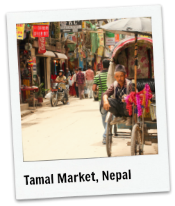Written by Jennifer Losie (Class of 2017, VFMP)

A piercing cry rippled through the crowded seven bed Emergency Room as a frantic mother ran in with her small infant. The baby wailed as nurses and paramedics quickly whisked her away to a tiny room beside Emergency. As I stood in the crowded treatment room, I watched as the Emergency Physician examined the screaming child, his hands covered in the child’s skin as it freely peeled off her body. The mother, with tears streaming down her face, tried to break through the crowd of health care professionals to check the status of her baby but she was quickly escorted away. I learned that the baby had third degree burns consuming 40% of her body. A pot of scalding water from the stove had fallen onto the small child. I watched, uncomfortable, as the nurses tried to clean the wounds on the baby’s face, torso, and leg. The baby continued to scream hysterically, her skin peeled off and disintegrated as the nurses tried to treat her.
The frantic mother sat on an unoccupied bed in the corner of the ER, alone and sobbing uncontrollably. After assessing the baby, the physician did not inform the mother about the child’s status. Instead, he simply moved onto the next patient who required care. I empathized with the young mother, and wished I was able to speak Nepali so that I could comfort her. The woman sat there for about 2 hours with no information until finally a nurse told her the baby was being admitted to the hospital.
This was one of the scenes I witnessed two summers ago when I travelled to Kathmandu, Nepal to participate in a Medical Internship Program through an organization called Volunteer for Change: Nepal. This four week Global Health experience gave me the opportunity to shadow doctors in many different departments in a private hospital. I feel that when people think of “Global Health,” the differences between health care systems across the globe are the first things that come to mind for many. There were many aspects of the health care system in Nepal that differed greatly from the system in Canada, such as: a lack of sanitation, barriers to health care access, and limited diagnostic equipment. However, despite these differences, my time in Nepal taught me about the universality of people’s health concerns. Regardless of race, ethnicity, culture, or language, patients often feel vulnerable and scared when they, or one of their loved ones, have a health concern. Specifically, in chaotic times filled with fear and confusion, communication and empathy on the part of the health care provider is paramount. As I witnessed the scene described above, I realized that the lack of communication between the child’s mother and the physician and consequently, the absence of any doctor-patient interaction is an extreme example of a globally widespread problem in health care.
Developing a strong doctor-patient relationship founded on trust, respect, and compassion is one of the greatest services a doctor can provide for their patient, or in the case of an infant, the child’s guardians. What surprised me about my Global Health experience was the unexpected similarities between health care in Nepal and Canada. These similarities helped reinforce a very valuable lesson that I will apply at home: the medical side of illness can only be carried out to maximum efficacy after a solid doctor patient relationship has been established.